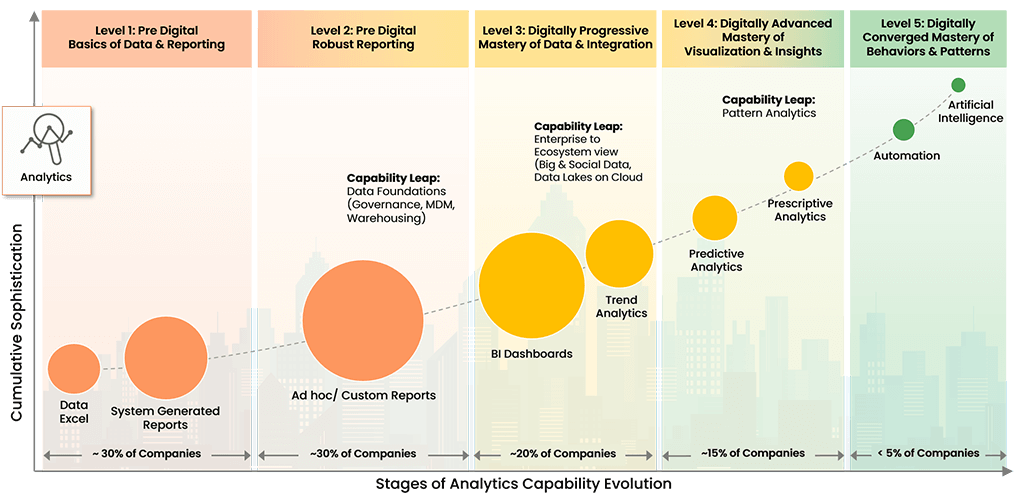Environmental Safety and Material Standards in Construction
Leading construction companies are well-versed in government, non-governmental organizations (NGOs),
and customer expectations for eco-friendly and energy-efficient construction practices. The key,
however, is finding an economical solution for materials, processes, and post-construction
sustainability that reduce the environmental footprint. To implement new material, process, and
post-construction standards, construction firms must make a greater push to leverage analytics.
Global sourcing and partnerships can help firms implement these ideas. Furthermore, augmented or
virtual reality (AR or VR) and 3D visualization of structures, drone-based surveys, connected
devices providing continuous data streams, and wear-and-tear information can help project teams make
better and more proactive decisions.
This would help to drive engagement from construction firms with customers. Similarly, digitalizing
construction management processes like materials and capacity planning-to-scheduling, just-in-time
(JIT) delivery, and building information modelling (BIM) for shared views of progress will drive up
capacity utilization, efficiency, predictability, and reduce the overall cost of delivering projects
for construction firms.
Only 7% of Companies Are Delivering on Their Transformational Initiatives
Our research has shown that 30% of companies will fail to survive this decade due to an inability to
evolve digitally. To address this negative trend, we have developed the Digital Enterprise Evolution
Model™ (DEEM.
Digital Enterprise Evolution Model™

Copyright © 2021 Trianz
DEEM allows our clients to recognize digital evolution patterns, implement benchmarking and
prioritization strategies, and initiate application management protocols to satisfy stakeholder and
market requirements.
Modernizing IT Function to Support Research and Development in Construction
A centralized research and development (R&D) department can help companies develop new technologies
or techniques, as well as roll these innovations out across business units globally. As a first step,
the IT function in the construction industry needs to be modernized to address new paradigms around IT
service management (ITSM) and IT operations management (ITOM). While most construction companies
understand the importance of cloud
investments , only a small proportion are committing
through investments
in analytics and process digitalization. There is a huge opportunity for improvement across the
entire construction industry. For the construction industry to thrive, digitalization must be integrated
as strategic point of view for the digital era.
Human Capital Management (HCM) in the Construction Industry
Our research has shown the construction industry is not investing enough in human capital management
(HCM). The value of experience is falling to the wayside in a complex industry that is in dire need of
technical skills and experience. With decentralization across business units, regions, construction
projects, and the workforce it is difficult to develop a unified work culture.
This is a challenge construction firms must overcome using digital transformation, training, and globally
consistent employee experiences (EX). To emerge into the vision-driven quadrant, CEOs must benchmark
their companies, focusing on transforming product-service portfolios, prioritizing the value chain, and
either acquiring new talent or upskilling existing talent via direct involvement.
Experience the Trianz Difference
Trianz enables digital transformations through effective strategies and excellence in
execution. Collaborating with business and technology leaders, we help formulate and execute
operational strategies to achieve intended business outcomes by bringing the best of
consulting, technology experiences and execution models.
Powered by knowledge, research, and perspectives, we enable clients to transform their
business ecosystems and achieve superior performance by leveraging infrastructure, cloud,
analytics, digital and security paradigms. Reach out to get in touch or learn more.


















